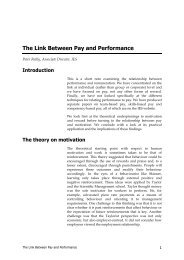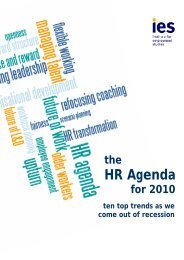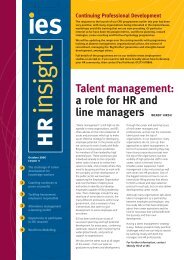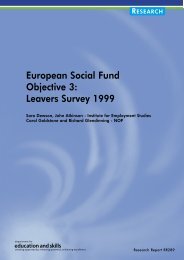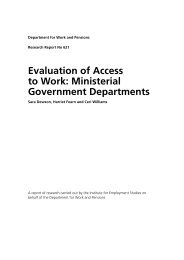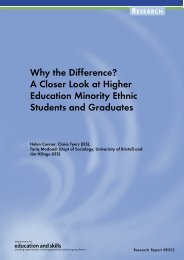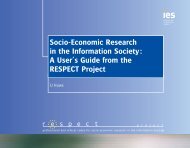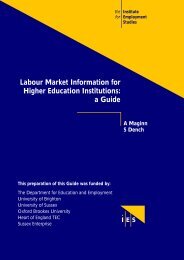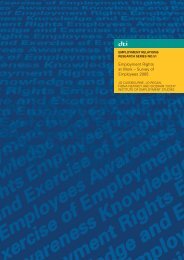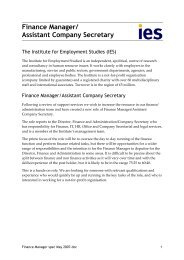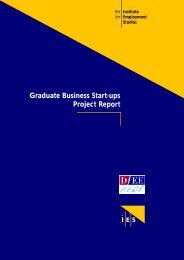Post-16 Transitions: a Longitudinal Study of Young People with ...
Post-16 Transitions: a Longitudinal Study of Young People with ...
Post-16 Transitions: a Longitudinal Study of Young People with ...
You also want an ePaper? Increase the reach of your titles
YUMPU automatically turns print PDFs into web optimized ePapers that Google loves.
those seeking additional information) and local council staff<br />
(nine per cent <strong>of</strong> parents looking for additional information).<br />
As <strong>with</strong> parents and carers seeking additional help on the<br />
other issues, most received this help by way <strong>of</strong>:<br />
• information<br />
• an explanation <strong>of</strong> the options available, and<br />
• help to plan additional support for the young person.<br />
One in ten parents and carers however, reported that,<br />
although they had sought additional help or support on social<br />
security or housing issues, this support or help had not been<br />
forthcoming.<br />
Less than one in ten parents and carers (eight per cent) had<br />
actively sought other published information and advice about<br />
social security benefits or housing. Again, parents <strong>of</strong> young<br />
people <strong>with</strong> statements <strong>of</strong> SEN and those attending special<br />
schools were more likely to have done so than those <strong>with</strong>out<br />
statements and/or who had attended a mainstream school.<br />
Parents <strong>of</strong> young people <strong>with</strong> sensory and/or physical<br />
disabilities were also much more likely to have sought other<br />
published information about social security and/or housing<br />
than those <strong>with</strong> children <strong>of</strong> other SEN types. Most <strong>of</strong> these<br />
parents had found this (largely useful) material at the Benefits<br />
Agency (44 per cent <strong>of</strong> those seeking additional published<br />
material approached this agency). Other sources <strong>of</strong> this type <strong>of</strong><br />
information included colleges, local councils, the Jobcentre<br />
and the internet.<br />
Just over one in ten parents and carers reported that they had<br />
encountered some sort <strong>of</strong> difficulty obtaining services or<br />
advice relating to social security benefits or housing. Once<br />
again, these difficulties related to a lack <strong>of</strong> general information<br />
or guidance (24 per cent <strong>of</strong> those encountering difficulties said<br />
this was the problem). <strong>16</strong> per cent <strong>of</strong> those experiencing<br />
problems trying to get support or advice said they had<br />
encountered a lack <strong>of</strong> financial support. 13 per cent reported<br />
that they received conflicting advice from staff in different<br />
services whilst ten per cent said they felt that staff from<br />
different services were not working together. A similar<br />
proportion also complained that they had to wait a long time<br />
for support to be provided.<br />
6.3.4 Special educational need<br />
One in five parents and carers had also sought additional<br />
support and information about the young person’s special<br />
educational need(s). Not surprisingly, parents <strong>of</strong> young people<br />
106<br />
<strong>Post</strong>-<strong>16</strong> <strong>Transitions</strong> <strong>of</strong> <strong>Young</strong> <strong>People</strong> <strong>with</strong> SEN: Wave 2



